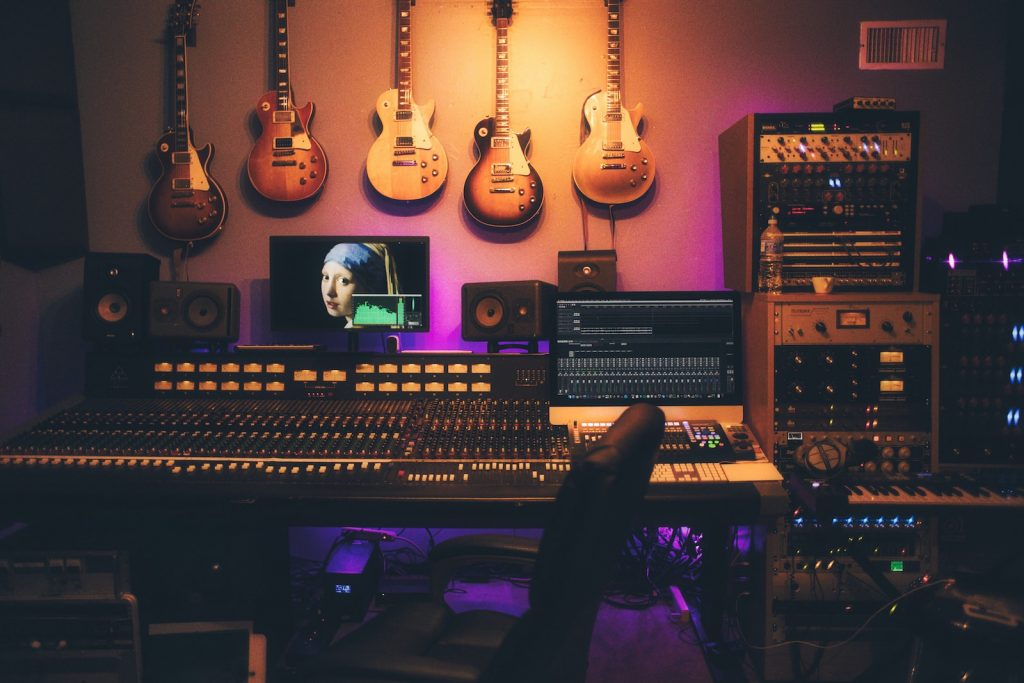This post may contain affiliate links which means I may receive a commission. Learn more on my Privacy Policy page.
How do video game music composers work with game developers to create the soundtrack?
Video game composers create musical scores that are then integrated into the final game. They also write sheet music for any musicians that may assist with recording processes – for instance Garry Schyman is well known for his contributions to both BioShock series and Middle-Earth: Shadow of Mordor.
Not unlike film composers, game composers usually start work long before there is even an idea for a prototype game to ensure their music fits with gameplay perfectly.
Composers work with game developers to create the soundtrack
Game composers collaborate closely with game developers to craft the soundtrack of their games. Composers may employ traditional orchestral instruments or use samples and synthesizers for this task. Furthermore, composers must be adept with any necessary software needed for composition or production such as microphones and boom stands as well as digital audio workstations.
An effective video game composer can create sounds that are distinctive yet relevant to the style of their game, through networking with developers in their area and putting together a showreel of musical scores that illustrate their abilities. They should also establish a website to display their work.
Though some game composers may have difficulty finding work, the industry is expanding quickly – providing musicians with the necessary skills and ambition the opportunity for success in this sector. Not only can video game composers compose for video games but they can also serve as sound designers or audio implementers.
Koichi Sugiyama of Dragon Quest fame, Nobuo Uematsu of Final Fantasy fame and Miki Higashino (Gradius, Yie-Ar Kung Fu and Teenage Mutant Ninja Turtles among others). These composers have become legendary within the video game community due to their genre-defining work – among them Koichi Sugiyama of Dragon Quest fame, Nobuo Uematsu from Final Fantasy fame, Miki Higashino from Radius Yie-Ar Kung Fu and Teenage Mutant Ninja Turtles). Some publishers neglect these talents while others recognize their value; for instance Koichi Sugiyama from Dragon Quest has produced some iconic work within different genres including Radius Yie-Ar Kung Fu and Teenage Mutant Ninja Turtles among others despite sometimes unpaid composers having created musical scores from several video game publishers recognizing them well compensated them well paid composers such as him/Her/her or Miki Higashino working across numerous games of various genres/Composers with others recognized well paid composers recognized talent while paying them well paid composers and pay them well paid them well when acknowledged; some recognize value such as well paid composers pay them well and compensate them accordingly!
Composers work with sound designers
Video game music composers collaborate with sound designers to compose the soundtracks for their games. They may come from backgrounds in music production or composition and use digital workstations to compose scores; additionally, they keep an extensive library with instruments and effects available so as to recreate sounds produced by an orchestra or band.
Video game composers typically operate as freelancers, meaning they need to sell themselves and their work effectively to clients and find work by building a portfolio to submit to gaming studios or producers or using blogs or websites as platforms to showcase it.
Gaming music is an essential component of an immersive game experience and essential in creating an atmosphere for players to dive into. Depending on the genre of the game, different kinds of music might be required, for instance a role-playing game with an epic fantasy setting might require music that conveys drama and adventure.
Beginning a career as a video game composer can be difficult, but it is achievable with hard work and determination. Aspiring composers should possess an intense passion for video gaming culture and understand its distinct culture and community; furthermore they should possess an in-depth knowledge of different game development processes as well as being able to adapt their personal style on each project they undertake.
Composers work with artists
Anyone who has played a video game featuring music can vouch for its power to elevate the overall experience. From catchy chip tunes to orchestral pieces, the sound design of video games plays an essential part of storytelling and world building. Game composers are responsible for crafting an orchestral score for each scene or character within their game; working closely with game designers and artists to ensure their soundtrack matches up perfectly with their vision for its development.
An effective video game composer requires many skills to do their job well, from knowledge of audio production and music composition techniques, to knowing how to use the necessary software and hardware – such as digital audio workstations, microphones and recording equipment – needed for their job. Most composers learn these abilities through self-teaching or practicing at home while attending gaming events and conventions to widen their professional network.
Finding work as a video game composer requires networking and presenting a strong portfolio. Aspiring composers should begin their careers small. It is unlikely they will be asked to compose the soundtrack of an AAA game right out of school; most likely they’ll begin their journey composing for smaller indie games with low budgets that may even include working alongside sound designers on teams.
Composers work with musicians
As opposed to film composers, video game music composers typically don’t collaborate with other musicians in their studio; rather they rely on digital audio workstations and other production software for compositions. Furthermore, they require a solid understanding of music theory in order to comprehend how composition works as well as translating their ideas into musical notation that will then be utilized by all musicians involved with production of final product.
Game music composers must know how to adapt their compositions for various environments and gameplay styles, such as long cinematic sequences or fast paced action games. Making your game music fit the environment requires careful planning and attention to detail as well as being flexible with tight deadlines and budgetary restrictions.
Programming skills are vital in creating interactive soundtracks, according to research published on GameSoundCon blog. Game companies value this feature when hiring composers for video game music composition projects.
No matter if they work freelance or in-house, video game composers can increase their chances of finding more jobs by expanding their professional network and attending industry events. Furthermore, learning how to program sound effects that may be needed for high-end game design could provide additional income streams.
For more please check our list of the most iconic video game themes of all time.




